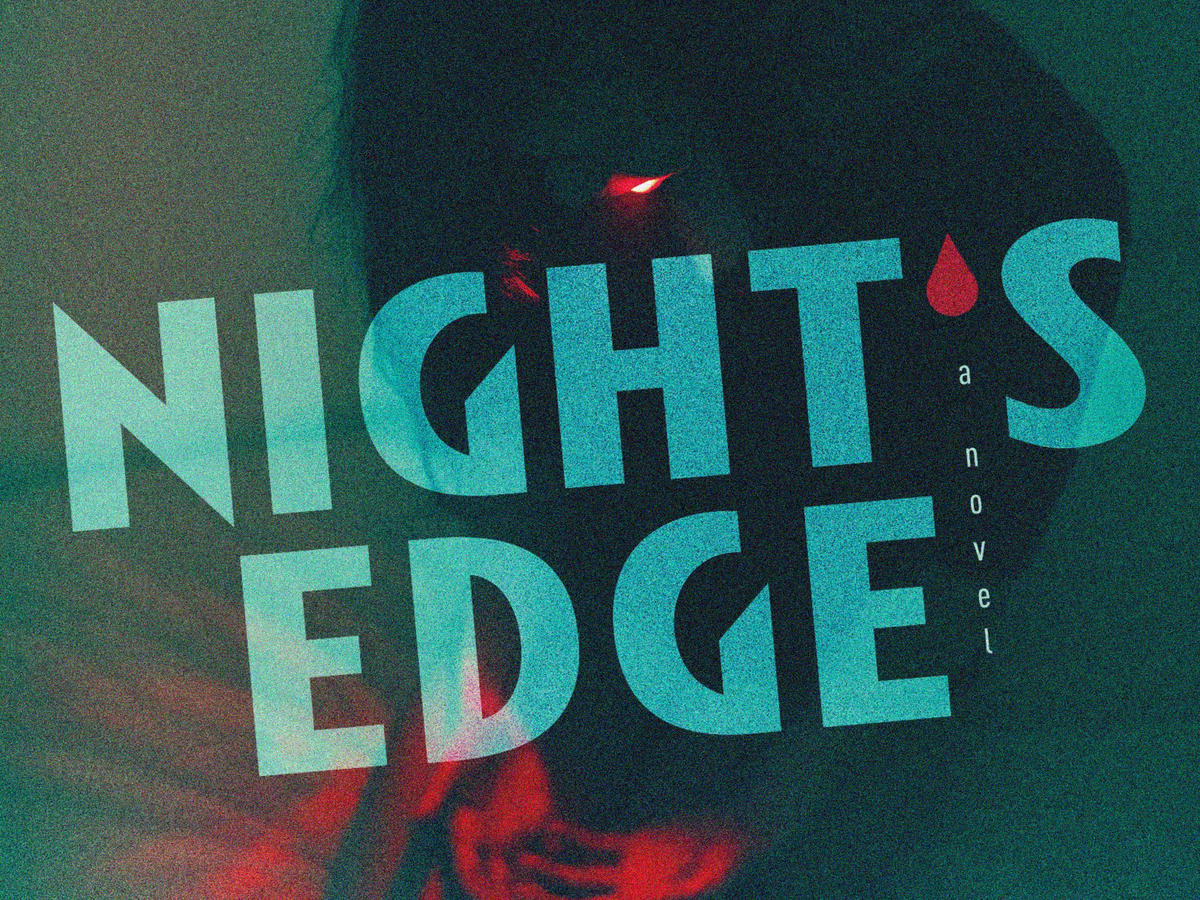sealing us up in a tomb together: night's edge
Does "what if covid but vampires" work as a novel? Whyever not?

We need to believe that everyone we give our love to is a good person. But if they change ... and if that change hurts us ... what then? Are they still good, deep down? Because they "weren't always like this"?
I didn't need to check the publication date to know Liz Kerin's Night's Edge was a post-covid novel; its depiction of modern North America contending with an emergent, seemingly undefeatable plague could only have been gleaned from our collective pandemic misfortune. But does "what if covid but vampires" work as a novel?
Mia is a seemingly normal twentysomething who works at a bookstore. In actuality, her life revolves around being her mother's vampiric familiar. Izzy was one of the earliest "Saras," or people with Saratov's Syndrome–an incurable disease that turns the infected into ravenous vampires with super-strength and seductive pheromones. By feeding daily on her daughter's blood and implementing a mandate of isolation and paranoia, Izzy has managed to stay under the radar and avoid being apprehended for a decade. The status quo is upended when the vampire who turned Izzy reappears in their lives just in time for Mia to have encounter with a magnetic barista named Jade.
A first, petty note: for a novel engaged with contemporary pop culture to refuse to use the word "vampire" to describe what are unambiguously vampires is goofy as hell.
To its credit, the conceit of Vampire Covid allows the book to commit to the premise of "infectious horror movie monster disease" without drawing its horror from fearmongering about HIV, but the story is nonsensical as a covid allegory. Banal pandemic details, such as vaccine-passport-meets-Theranos blood scanners at the doors of businesses, are fun but don't add up to meaningful commentary about disease or social control besides highlighting how social disruption and quarantine enable interpersonal violence. That theme has juice, but I was insufficiently persuaded that covid vampires are the ideal method of delivery.
I would have enjoyed this novel more if it was shorter and more tightly focused, with Mia's romantic plotline scoped down. The love interest, Jade, is thinly drawn, despite pains taken to depict her as quirky and cool enough to make Mia realize she needs to live her own life: Jade is in a band! Her hair is weird colors! She's a barista, but gets fired for giving away too many free drinks! You know she's gay because she sits weird in chairs! Referring to MPDGs in media criticism in 2024 is passé, but the vibes are there, due to a lack of interiority more than aesthetic signifiers. The first-person-present-tense narration, YA in flavour despite the novel's adult horror designation, didn't help in this regard.
That said, it goes down smooth (for those of us who can handle graphic depictions of parental abuse); tension is high, and I often found myself surprised and disturbed by the depictions of mundane violence. Vampirism as a heightened metaphor for abusive relationships isn't subtle nor unique, but its execution is visceral and grisly. However–without going into explicit spoilers–the novel answers the question, "How can Mia live a life free of her abusive mother, if abandoning her will result in her mom becoming either institutionalized or a serial killer?" in a manner both convenient and unsatisfying, and retroactively soured me on the narrative's strongest element.
Issues aside, I would recommend this novel to people who like complicated mother-daughter relationships or unconventional takes on vampire mythos. Despite its queer content, I wouldn't recommend the book on those grounds alone, as I found that aspect of the story underripe for my taste.
I still plan on reading the sequel, so rate my grumbling accordingly.
Pick up Night's Edge via Tor Nightfire.